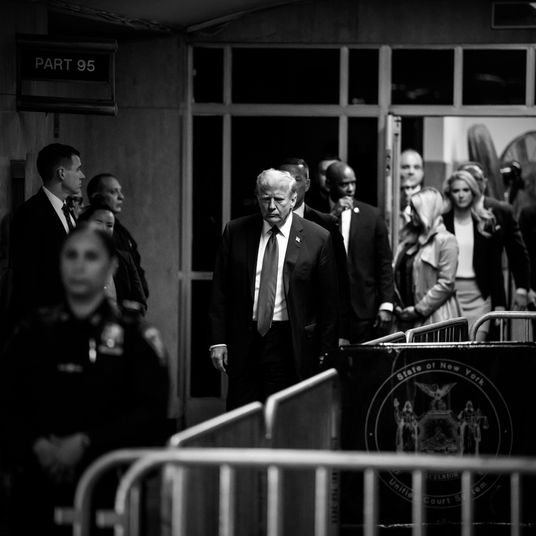
In theory, crowdsourced “citizen journalism” is a good idea. After all, all it really takes to be a journalist is certain critical-thinking skills and/or access to information that other people don’t have. Gather a big enough crowd online and that is a lot of brainpower, a lot of access to information.
Of course, that isn’t how things seem to work these days at all. Rather, whatever potential the concept of crowdsourced citizen journalism has is getting squandered rather spectacularly.
Take the final weeks of this brutal presidential campaign, where there’s by now a well-established pattern: Every time WikiLeaks drops a new trove of Hillary Clinton or Democratic National Committee emails, a torrent of bullshit is uncorked. That’s because countless citizen journalists rush to pore over the documents, posting j’accuse screen-grabs ripped from context that are quickly retweeted through huge, hyperactive networks of anti-Clinton Twitter denizens.
Many of these accounts are small, but there are plenty of big accounts helping to tweet and retweet the hysteria. Here was one of the most noteworthy examples from last week:
To any working — that is to say, professional — journalist, there’s nothing here. Not because we’re trying to cover up collusion, but because this is a perfectly conventional interaction between a writer and subject. If I find out something about a subject and plan on writing about it, then it’s my professional obligation to reach out and let them know that that story is in the pipeline, to give them a chance to comment (it’s also not unusual to just give them a courtesy heads-up, especially if it’s a source or subject you have a preexisting relationship with and plan on working with more in the future).
The headline description of this email is “Journalist Does Job.” And yet it, and countless other nothing snippets of nothing emails, has been crackling energetically across gonzo social media. Here’s InfoWars misinterpreting some of the leaked material to claim John Podesta may have assassinated Antonin Scalia (17,000-plus shares), to take one example. And these paranoid networks also circulate plenty of false political rumors that have nothing to do with the WikiLeaks leaks, of course: Here’s a troll making a joke about ripping up conservative election ballots, which subsequently got picked up by both Matt Drudge and Rush Limbaugh, infecting millions with a spectacular false rumor.
There are, of course, insights to be gleaned from the leaked emails, plenty of them damning for Clinton and/or the campaign and/or the DNC, and in a better world, they might be uncovered by citizen journalists. Instead, they’re being reported on by the mainstream media. In The New Republic, David Dayen explained that some of the leaks reveal important details about the question of whether future Democratic econ and finance policy will be driven by old-school, corporate-friendly wonks in the “Bob Rubin school,” or a more progressive wing of experts led by Elizabeth Warren. In the New York Times, Amy Chozick and Nicholas Confessore, two of that paper’s top political reporters, explained how the leaked Goldman Sachs transcripts likely would have hurt Clinton during her fight against Bernie Sanders’s populist insurgency. Politico published a helpful, regularly updated blog in which its reporters highlight and explain key bits from the leaks.
These are stories written by people with knowledge of what they are covering, who can explain the meaning of a given email and its broader context from a place that isn’t slick with spittle. And there’s no reason, necessarily, that citizen journalists couldn’t have done some of this work. Surely, there are other, far less famous people on Twitter who have important contributions to make to this discussion as well: retired bureaucrats and political-science professors and laid-off print journalists and anyone else with the relevant knowledge and something interesting or important to say.
And yet this sort of coverage and commentary — sane commentary, originating from a place of basic competence and knowledge and good faith — probably accounts for something like 5 percent of the total online content generated by the leaks. The rest is misunderstanding and innuendo and malicious misrepresentation, and it’s doing serious damage to democracy’s ability to function. There’s just no way to have any sort of actual conversation about anything when a very loud, very engaged minority of the population is reacting to bullshit.
I could see someone responding to these complaints with a shrug, with a This isn’t new! After all, media in the United States has been ideologically segmented for a long time. Fox News is no longer the new kid on the block. It was more than six years ago that the libertarian writer Julian Sanchez first coined the term “epistemic closure” to refer to online communities that seem to exist according to their own closed, parallel conception of reality, immune to debunking. For a long time, the fact that a big chunk of America lives in a paranoid, fearful parallel news-universe has been a problem.
But there are good reasons to think that things are much worse today than they were in even the recent past, and that we could be approaching some sort of precipice. One is the total collapse of any sort of institutional authority whatsoever. Eight years after the election of Obama jarred something permanently loose in conservatives’ collective consciousness and gave rise to the tea party, a movement that helped demonstrate the thriving American market for conspiracy-driven, racially tinged populist resentment, there is no dam to stop the flood of screaming online conservative paranoiacs. The mainstream GOP that might once have held its right wing in check is now the party of traitorous sellout cucks. Fox News — which only yesterday, it seems, was viewed by liberals as a worst-case scenario of conservative propaganda and misinformation, but which does exhibit some whiff of journalistic standards when it comes to the ethics of disseminating the gonzo-est of conspiracy theories — has been abandoned by the unhinged wing of the right for the crime of not being sufficiently enthusiastic about Making America Great Again.
The reason for this shift, in part, is that Establishment outlets and political parties can no longer control the frame of discussion: The internet and social media have given Alex Jones and Paul Joseph Watson and Breitbart and a whole host of others direct access to a huge market of the most credulous consumers imaginable, allowing them to peddle globalist progressive Syrian ACORN whatever conspiracy — a sales pitch that explicitly undermines the authority of their larger, institutional competitors (“Why won’t the mainstream media report on this?!?!”). Online, the riled-up conservative masses meet (granted, in much smaller numbers) the Monsanto paranoiacs and Jill Stein voters of the left, who are similarly unwilling to accede to Establishment notions like, you know, truth and facticity. And all of these people and outlets are happy to retweet and publish articles about every new “revelation” churned up by the dogged citizen journalists convinced we are one leaked email away from ironclad proof that the Democratic nominee is a deranged serial killer.
Which brings us to the other reason to feel hopeless: Things are so much faster than they have ever been. Misinformation spreads within seconds of being posted and can’t be stuffed back whence it came. I’ve now seen several people post screen-grabs of some sensational false claim made on Twitter about the WikiLeaks dumps, and then a follow-up tweet correction saying, “Whoops, I misunderstood.” Inevitably, the correction gains a tiny fraction of the attention as the false claim, which ricochets around for days. Plus, when new revelations are unearthed, everyone wants to be the first to draw attention to them. There’s zero incentive to fact-check, because slip-ups are forgotten so quickly, and because the members of the community spreading these falsehoods so forcefully reject — or are unfamiliar with — the values of skepticism and fact-checking, since they already know that Hillary Clinton poses an existential threat to the American life, since they already know that she has committed treason and should maybe be executed. This is a credulous, angry, hair-trigger crowd.
There might really be no way out from this. Social scientists have had a very tough time figuring out any reliable way to effectively debunk conspiracy theories, and one brutal feature of the current tire fire is that the people who are in the best position to sift myth from fact — that is, journalists and wonks with expertise — are exactly the people who are not to be trusted, because they are part of a giant conspiracy theory to undermine the people. It could all be leading us to a very dark place: What happens when the size of the population who believes in this stuff hits a critical mass? What happens when these people break off completely even from Fox News and the broader world of mainstream conservative thought?
We’re all engaging in a big, messy experiment in how human beings produce, consume, and disseminate knowledge, and in how they form ideological and identity-based alliances with one another. There’s never before been anything like it, and it’s not going well so far.





























